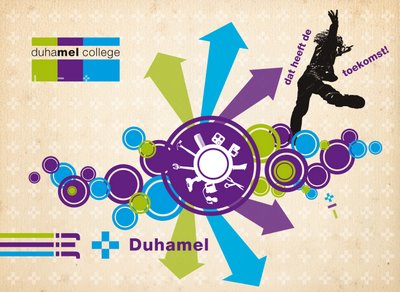This is an interesting exchange of views that took place in blogworld:
Today I read pc.blogspot.com where the statement was made that Faith is as evil as smallpox. I responded by saying that:
"Funny enough Richard Dawkins is a believer too. He believes in naturalism. And you really need quite a big faith to believe that the material reality that we experience is all there is. The very statement that 'faith is evil' requires a set of presuppositions that can't be proven themselves and thus require belief."
The response I got was the following:
'Yossman, to apprehend this world all you have to do is look around. But to try and explain what we do know, ie., all this that we see and experience, by means of something we neither see nor experience requires a leap in the dark. Literally, a leap of faith. The difference is clear enough.'
I gave the following response:
No, I don't agree.
First. We do not know for sure that what our senses perceive is really true. If there is anything out there at all. In order to prove it rationally we have to use our logical thinking, the effectiveness - or rather truthfullness - of which we can only prove by using the very logic we try to prove, thus creating circular reasoning. (This is rather Kantian I suppose.) What I am trying to say is that we have to believe our senses and logic in order to interact with the world and interpret the world. By giving a rational/material explanation of all that is, we are already taking huge steps of faith. Believing in a God might be just a higher form of believing than believing the senses.
Secondly looking around doens't explain for a lot we see and experience. For instance our morality, or the big bang, or the apparent mind-boggling design on both macro and micor levels, or consciousness, or beauty and our ability to perceive it. It might actually be a very logical thing to postulate the existence of a powerful Being that has brought everything about.
Thirdly, the material worldview runs aground trying to build a lasting basis for morality for instance. How on earth can we derive an 'ought' from the 'descriptive' fact of zillions of atoms that are out there?
Truly, saying that faith is an evil thing is an illogical thing to say. The statement itself is based on faith as it can't be proven. It's a self-refuting claim.
---
I got a lot of feedback on that post and gave the following reply. I'll leave it at that.
Apparently you don't seems to understand that to interpret data is so much as to impose a mental (ie. invisible) mental structure upon those data. To arrive at any origin from a given amount of perceivable states you have to take a leap of faith. Postmodernism has shown us that much.
My point is to argue not in favor for a leap of faith, however, but to show that any position that interprets the world takes certain steps of faith. To believe in God is therefore not less rational than not to believe in Him. My interpretation of the facts at hand has led me to believe there is a God (in fact just by looking around me).
Furthermore I would like to point out that 'faith' as such (whatever it really means) can neither be wrong or good. It is rather the content of faith - and very often the way in which it has been working out in people's actions - that has led to destructive consequences. As has the content of non-religious 'isms'.
Islam for instance holds to the idea that unbelievers have to be converted by force. Although it needs to be said that most muslims would not advocate this at the present.
I know that many self-proclaimed Christians have done horrible things even in the name of their religion (slavery, crusades, imperialism, etc.)
As far as naturalism goes, here is an 'ought' derived from evolutionary naturalism that is not very nice either:
Nazism cannot be condemned by means of a naturalistic morality. The nazis were trying to advance their race and were doing the logical thing in order to diseminate their genes as widely as possible.
Labels: apologetics, philosophy






